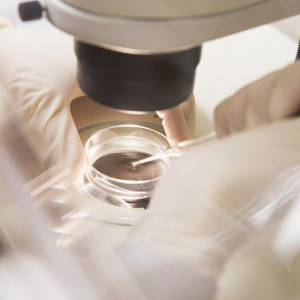For many couples facing fertility challenges, the path to parenthood can be filled with uncertainty, emotions, and countless questions. However, with medical advancements in reproductive technology, In Vitro Fertilization (IVF) has emerged as a beacon of hope for countless families. IVF offers an effective solution to overcome a wide range of infertility issues — from blocked fallopian tubes and low sperm count to unexplained infertility.
In Lahore, a city that has become a hub for advanced medical care, couples now have access to internationally recognized fertility specialists, cutting-edge labs, and compassionate medical teams that make this life-changing journey smoother and more successful. Understanding the step-by-step journey of IVF treatment can help you prepare emotionally, physically, and mentally for what lies ahead.
Why Choosing the Right IVF Center Matters
Choosing the right IVF center is the cornerstone of your fertility journey. It’s not just about selecting a medical facility — it’s about finding a team that understands your emotional struggles, respects your privacy, and provides personalized care backed by experience and technology.
An excellent IVF center offers far more than just procedures; it provides a supportive environment that empowers patients with knowledge and guidance. The fertility specialists and embryologists play a vital role in tailoring treatment according to each couple’s unique medical history, age, and reproductive health. From the first consultation to the final pregnancy test, every step is handled with precision and empathy.
When evaluating your options, consider the following key aspects of a reliable IVF center:
-
Expertise and experience of the fertility doctors and embryologists.
-
Advanced technology such as modern labs, embryo monitoring systems, and genetic testing.
-
Transparent communication about treatment plans, costs, and realistic success rates.
-
Patient-centered approach, focusing on emotional well-being alongside clinical excellence.
The right IVF center becomes your partner in this deeply personal journey, providing both hope and medical expertise.
Step 1: Initial Consultation and Fertility Assessment
The IVF journey begins with an in-depth consultation with a fertility specialist. During this stage, the doctor takes time to understand your medical history, previous fertility treatments (if any), and your current health condition.
You and your partner will undergo various diagnostic tests to determine the root cause of infertility, such as:
-
Hormonal tests: To check ovarian reserve and reproductive hormone levels.
-
Ultrasound scans: To assess uterine health, ovarian function, and follicle development.
-
Semen analysis: To evaluate sperm count, motility, and morphology.
-
Blood tests and screening: To rule out infections or genetic conditions.
These tests are crucial for creating a personalized IVF plan that addresses your specific fertility challenges. Your doctor will explain the findings clearly and discuss treatment options, including IVF or alternative procedures like ICSI or IUI, depending on your results.
Step 2: Ovarian Stimulation
Once your treatment plan is finalized, the next phase begins — ovarian stimulation. The goal of this step is to encourage your ovaries to produce multiple mature eggs instead of the single egg that typically develops during a normal menstrual cycle.
You’ll be prescribed fertility medications (usually in the form of hormone injections) for about 8–14 days. During this time, you’ll have frequent ultrasound scans and blood tests to monitor your body’s response. The doctors carefully track the growth of follicles — small sacs in the ovaries that contain eggs — to determine the best time for retrieval.
This stage requires patience and regular clinic visits, but it is one of the most important steps in ensuring a successful IVF outcome. The right dosage and timing are critical for producing healthy eggs while minimizing the risk of overstimulation.
Step 3: Trigger Shot and Egg Retrieval
When your follicles have reached the desired size, your doctor will give you a “trigger shot” — an injection of human chorionic gonadotropin (hCG) or a similar hormone that helps the eggs mature for collection.
About 36 hours later, the egg retrieval procedure takes place. It’s a short, minimally invasive procedure performed under light sedation or anesthesia. Using ultrasound guidance, the fertility specialist gently collects the eggs from your ovaries using a fine needle.
You may experience mild cramping or bloating afterward, but recovery is usually quick. The collected eggs are immediately handed over to the embryology lab, where the next vital step begins — fertilization.
Step 4: Sperm Collection and Fertilization
On the same day as egg retrieval, a sperm sample is collected from your partner (or a donor, if applicable). The embryologists then prepare the sperm, selecting the healthiest and most active ones for fertilization.
There are two primary fertilization techniques:
-
Conventional IVF: Eggs and sperm are placed together in a lab dish to allow natural fertilization.
-
ICSI (Intracytoplasmic Sperm Injection): A single sperm is directly injected into an egg — ideal for cases of male infertility or low sperm count.
After fertilization, the resulting embryos are carefully cultured in controlled lab conditions for 3–5 days. Embryologists monitor their development using advanced imaging systems to ensure only the healthiest embryos are selected for transfer.
Step 5: Embryo Transfer
Once the embryos reach the blastocyst stage (day 5 of development), your doctor will select the best-quality embryo(s) for transfer. This procedure is simple, painless, and does not require anesthesia. Using a thin catheter, the embryos are gently placed into your uterus.
Any remaining healthy embryos can be frozen for future use, allowing you the option to try again if needed without repeating the entire process.
After the transfer, you’ll be advised to rest briefly before resuming normal daily activities. However, doctors often recommend avoiding strenuous exercise and managing stress carefully during this time.
Step 6: The Two-Week Wait
Perhaps the most emotionally challenging part of the IVF journey is the two-week wait after embryo transfer. During this period, you’ll take medications like progesterone to help prepare the uterine lining for implantation and support early pregnancy.
It’s natural to feel anxious or impatient, but staying calm and positive is important. Avoid taking early pregnancy tests, as they can give misleading results. Instead, your doctor will schedule a blood test (beta hCG) approximately 14 days after transfer to confirm whether implantation has occurred successfully.
Step 7: Pregnancy Test and Follow-Up
If your pregnancy test is positive, congratulations — you’ve taken your first step toward parenthood! Your fertility clinic will continue to monitor your hormone levels and schedule early ultrasounds to ensure the pregnancy is progressing normally.
If the test result is negative, it’s understandable to feel disappointed. However, your doctor will analyze the cycle’s outcome, review lab results, and discuss next steps. Many couples achieve pregnancy in subsequent cycles after minor adjustments to medication or timing.
Remember, IVF success rates improve with persistence, a healthy lifestyle, and continuous guidance from your fertility team.
Emotional and Psychological Support During IVF
IVF can be emotionally demanding, and managing stress is just as crucial as the medical process itself. Reputable IVF centers offer counseling and emotional support for couples throughout their journey. Talking to professionals or joining support groups can help you cope with anxiety, maintain hope, and strengthen your relationship with your partner.
Some helpful emotional coping strategies include:
-
Practicing relaxation techniques like yoga or meditation.
-
Journaling your thoughts and emotions.
-
Engaging in hobbies or light physical activities to reduce stress.
-
Maintaining open, honest communication with your partner.
A positive mindset doesn’t just make the journey easier—it can also contribute to better treatment outcomes.
Lifestyle Tips to Enhance IVF Success
The journey of IVF treatment doesn’t begin and end at the clinic—it also involves lifestyle adjustments that can greatly impact success rates. Here are some key recommendations:
-
Eat a balanced diet: Include fresh fruits, vegetables, whole grains, lean proteins, and healthy fats.
-
Avoid smoking and alcohol: These can reduce fertility and embryo quality.
-
Stay hydrated: Proper hydration supports reproductive health.
-
Exercise moderately: Light exercise improves blood flow and reduces stress.
-
Prioritize sleep: Aim for 7–8 hours of quality sleep each night.
Your fertility specialist may also recommend specific supplements such as folic acid or vitamin D to prepare your body for conception.
Financial and Ethical Considerations
IVF treatment can be a significant financial investment, but it’s important to view it as a life-changing medical journey rather than a single procedure. Top fertility clinics in Lahore maintain transparency in pricing, explaining each cost—from medications to embryo freezing—before treatment begins.
Many clinics also offer affordable packages or financing options, making fertility treatment accessible to more couples. Equally important is the clinic’s ethical approach: ensuring informed consent, respecting patient privacy, and maintaining medical integrity throughout the process.
Conclusion
The journey of IVF treatment in Lahore is a blend of science, dedication, and emotional strength. Each step — from initial consultation to embryo transfer — represents a milestone toward achieving your dream of parenthood.With the guidance of an experienced IVF center, state-of-the-art technology, and compassionate specialists, this once-complicated process has become more accessible, effective, and comforting than ever before.While IVF may test your patience and resilience, it also gives you a renewed sense of hope. Every injection, scan, and consultation brings you one step closer to holding your baby in your arms — a dream that makes every part of this journey worthwhile.







